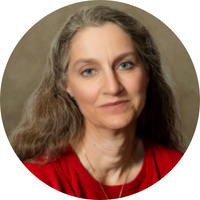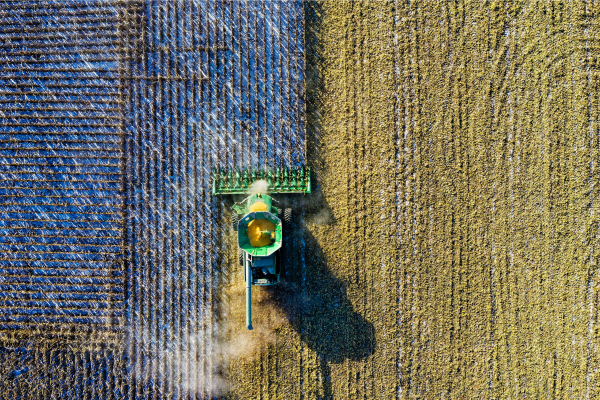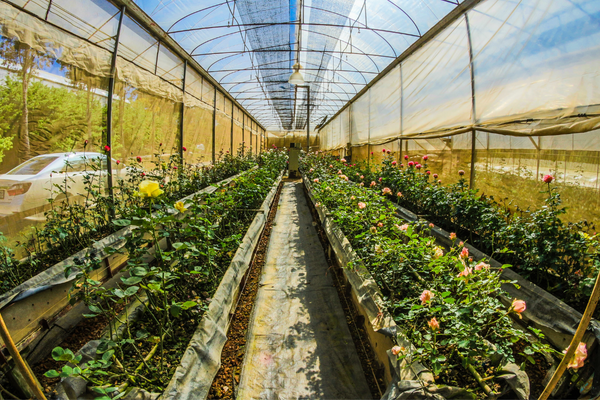
What are some of the ways that looking for a job have evolved since the time you first began your role as an ACS Career Consultant?
Since I am a freelancer, I am always looking for my next job, so I pay close attention to job searching trends. In my experience, there are cycles. Way back, it was all about who you knew – advisors would call their friends to get their students a job, for example. Then we went through a period where all applications were submitted online, so everything was “fair.”
Unfortunately, as it got easier and easier to apply online, HR departments became overwhelmed with barely qualified candidates. So, HR departments implemented AI, in the form of applicant tracking systems, (ATS) to sort through applications and decide which ones best match the job description and therefore should be read by a human. Even many of the questions normally asked in an interview were moved into the online application.
As it got harder and harder to get through the ATS and get your application to the next step, candidates are again turning to networking, and asking friends of friends to help get their application to the appropriate human. In the end, it’s always a combination of having the right skills, and knowing where and how to advertise them.
As an ACS Career Consultant, you have lots of experience in helping people get a job, or advance within their careers. What are the most valuable non-technical skills in today’s chemical industry marketplace?
Of course I am going to say communication, especially in written form. If you can’t effectively communicate with other people, it doesn’t matter what you do, because no one will know about it. You need to understand who your intended audience actually is, and present the information they need or want, in the manner they prefer.
Sometimes, your audience is not the person to whom you are speaking, but the boss or customer behind them, so you need to write for that person instead. Learning how to present your ideas, arguments, and results well in written form is one of the best things you can do for your career.
Though you work primarily from your home office, no one can escape the consequences of the COVID-19 pandemic. In which ways has it most impacted your work?
I have been working from home for 28 years, so that part has not changed much – though the last several weeks have been “Working from Home – Extreme Edition.” I’ve had to get used to having other people in the house during my work day, and the changes that brings. Staking out different work spaces - that are not within hearing distance of each other - has made that easier.
The type of projects I’m working on have changed dramatically – preparing abstracts and posters for scientific meetings is all cancelled, and my travel schedule for teaching workshops is now completely clear through at least September, maybe longer. I have seen a small uptick in requests for help with grant proposals, and I’m expecting requests for peer-reviewed journal articles to increase, as researchers have more time to start drafting them.
You are another example of a person who found her calling though serendipity rather than design. Why do so many people seem to find their careers in this manner?
There are so many career options out there, it’s impossible to know about all of them. Most people start out in a career they know a little about, and think they will like. Once they start doing that professionally, they find out they actually like this part of the job, but don’t like a different part.
I once had someone tell me they wanted to change careers, because once they actually started working in their chosen profession, they found “XXX is much more fun to talk about than it is to actually do. In fact, it’s actually pretty boring.” They only learned this after they had been there for a few years, and learned the job well enough that it got repetitive. Once they get started in a career, people move towards doing more of things they like, and the things they find they are good at.
In many cases, people don’t realize what they are good at: since it’s easy for them, they assume it’s easy for everyone. It often takes a supervisor or colleague to say “Hey, you’re good at this, you should do more of it.” Over time, as they learn new skills and learn more about themselves, they move into the career that is right for them.
How do you benefit from attending professional society meetings? And which professional society meetings do you tend to attend?
I have attended ACS national meetings since 2002, regional meetings since 2000 (multiple regions), and local section meetings. I also attend meetings of the American Medical Writer’s Association, NOBCCheE, American Geophysical Union, American Vacuum Society, and a few others.
I usually go to present workshops on career development topics for scientists, but I love visiting the expos, seeing the cool technology, and talking to people. No matter what the meeting is, the best part is the people I meet. Once you’ve gone to the same meeting a time or two, or especially when you volunteer to help organize part of it, you have colleagues who become friends, and look forward to seeing them. I often refer to ACS national meetings as my 10,000 best friends that I only see twice a year.
Of course, I also use in-person meetings to refresh my networking connections, and usually come away with at least a few new leads on potential projects. The recent forced move from in-person to all virtual meetings has made that a challenge, but I’m starting to see people more willing to make connections online, as they are starved for human contact.
To what - or to whom - do you credit your writing skills?
That is an interesting question, and I never really thought about it. One of my biggest strengths is my ability to write succinctly, probably because I don’t like to waste time. It usually takes a lot longer to write something succinctly, but if it’s done well, it makes your point much more clearly, and saves time in the long run.
I also enjoy the initial stages of a project where I am collecting lots of information on the topic, organizing and distilling it – exactly what I learned how to do in school, so I thank my undergraduate and graduate mentors for that.
What’s the rarer skill among chemists: Superior presentation skills? Or superior writing ability? And why do you suppose that is?
I think more chemists are aware when they are poor presenters, because the audience provides immediate feedback. That may be part of the reason so many people don’t like public speaking – they are afraid of what the audience is going to tell them. With written communications, people tend to blame the reader for not understanding what was obviously clear to the author when they wrote it. Virtually all scientists think they can write well, but the fact that I have a job proves otherwise.
What is the secret to effective networking – something you strongly advise people to do?
I’m not sure it’s a secret, but networking is not about getting other people to do stuff for you, it’s about finding things you can do for them. I firmly believe there is something interesting about everyone, and if you just talk to them long enough you will find it.
I keep track of people’s hobbies and interests, and then look for ways to send them things that they will find interesting. I am constantly looking for information that others will find interesting, and ways to help them out.
How would you characterize the workplace environment for female chemists starting their careers today vs. when you began your career? What advice do you have for women chemists?
There was only about one other female chemistry major when I was an undergraduate student, but I never really thought about it at the time. When I went to graduate school, my lab was in a 9-story building that had male restrooms on every floor, but only female restrooms on the 3rd, 6th and 9th floors. That’s all the secretaries needed. By the time I graduated, they had retrofitted a few of them, but I still had to walk up or down a flight of stairs every time I wanted to use the restroom. That building has since been torn down, and now many places are starting to move to gender-neutral bathrooms.
Access to bathrooms may seem like a minor point, but lots of little things like that add up.
My advice would be to pay attention to things like that, point them out, and ask for them to be changed, if possible. The vast majority of the time they are historical accidents, and not done maliciously.
You have said that learning when and how to say "no" is a skill you need to improve. What leads you to say that? Do you overcommit yourself?
Yes, I tend to overcommit myself, as evidenced by the fact I agreed to answer your questions in the middle of a pandemic.
Truthfully, I have many interests and love to learn new things, so it’s hard to turn down interesting opportunities. Over the years, I have gotten to do some pretty amazing things (like managing 450 staff and about 40 partner organizations to put on a 6-acre, 10-day STEM Quest program). However, I have also agreed to do some things just because they needed to be done, and no one else volunteered. That almost always turned out to be a mistake – if I was not excited about the project, I was not motivated, and did not do my best work.
I now try to only agree to do things that I am passionate about, which leads to more fun for me and a better outcome for everyone involved. I’ve also learned that sometimes my saying “no” leads to them finding someone even better to do it.
For nearly 15 years, you have been overseeing volunteers in feeding and care of adoptable house rabbits. How did you come to have a love for rabbits? And is it okay to eat a chocolate bunny?
My husband and I got our first rabbits shortly after we were married – they were perfect apartment pets. Later on, when our children were old enough to want a pet, we remembered how great they were and rescued another one. That was Miles, who lived with us for 11 years until he passed away, and he is still the mascot for my business. He was very smart, with an amazing personality. We later adopted a couple of friends for him, and currently have five bunnies living with us (all spayed/neutered, two live in my office).
Shortly after we got Miles I started volunteering weekly at the local rabbit shelter, to learn more about how to care for rabbits – and that was 15 years ago! Rabbits are prey animals, not predators like dogs and cats, so think and act very differently. They are also the third most often dumped pets, especially 6-8 weeks after Easter. I very much enjoy caring for small, fluffy creatures who appreciate it, and only ask for more petting (and maybe a treat).
And yes, when it comes to Easter bunnies – Make Mine Chocolate! Especially dark chocolate.

Lisa M. Balbes has been an independent consultant for over 25 years. A traditional resume is available, as well as a publication list and list of awards she has won. Recent projects include scientific writing, web site development and consulting.
She has a professional profile on LinkedIn.com, and has been mentioned in the popular press.
She does volunteer work for a number of professional and charitable organizations, and in her spare time practices all types of needlework, and haunts St Louis Area needlework shops. She also has two children. She is the current keeper of the Troop 352 Patch Blanket.
One current quest is to find missing classmates from the Kirkwood High School class of 1981, where she was Lisa Marie Rosenberger. If you are one, or know one, please contact her.
Mark Balbes provides technical and programming support, and Miles the Office Rabbit provided paper shredding and comic relief.
This article has been edited for length and clarity. The opinions expressed in this article are the author's own and do not necessarily reflect the view of their employer or the American Chemical Society.
Copyright 2022 American Chemical Society (All Rights Reserved)







